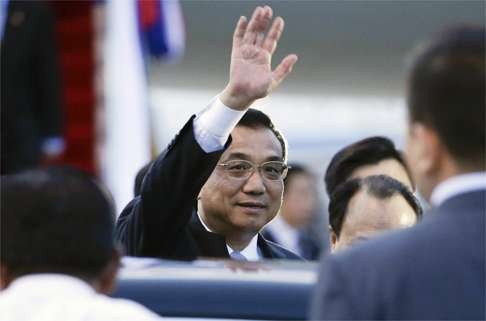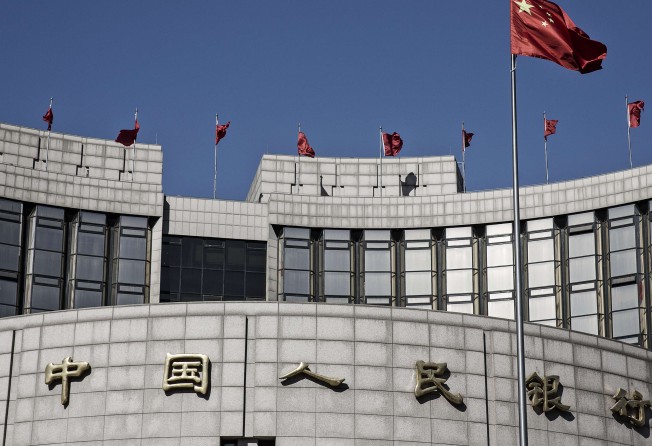
What happened to Likonomics? China makes no big progress in cutting corporate debt
Leading economist who coined term describing Premier Li Keqiang’s economic theory, left disappointed as deleveraging makes little headway

A leading Chinese economist, who gained fame for coining the term “Likonomics”, is disappointed by the slow progress on deleveraging – one of the cornerstones of Premier Li Keqiang’s economic theory.
Huang Yiping, a professor at Peking University, who is also an academic member of the central bank’s monetary policy committee, came up with the term three years ago when he was chief China economist at Barclays.
The theory proposed by Li, who has a PhD in economics, promoted structural reform, deleveraging – reducing high levels of debt – and no stimulus.
However, Huang told a university forum in Beijing, held at the weekend, that there was little sign that one of the cornerstones of the concept was on a firm footing as state corporate debt was continuing to rise.
“There has not been any substantial progress in deleveraging yet and there’s no consensus on an effective way to achieve it,” he said.
It took time to reduce high-level corporate debt so it was important to prepare a long-term process, Huang said.
When Li and President Xi Jinping came to power three years ago, hopes were high that the administration would take the painful but essential steps towards economic sustainability instead of relying on the crutch of debt-fuelled investment for growth.

Huang said one barrier to cutting debt levels was that funding often went to companies with government ties instead of dynamic private businesses.
State companies can easily obtain loans at reduced interest rates, while small and private companies face limited access to more expensive bank credit.
In this “financial dual-track system”, funds unleashed by banks ended up in less-efficient state businesses while “most businesses and individuals cannot access to good financial services”, Huang said.
That raised the risk of stagnation “no matter how much capital is used”, he said, warning of a repeat of Japan’s “lost decades”.
Alfred Schipke, the International Monetary Fund’s senior representative for China, went a step further on Monday, saying that top Chinese decision makers should have the courage to let its “zombie” companies – those that receive cheap funding but run at a loss, or do not generate enough profit to cover their interest payments – go bust.
“China’s bankruptcy framework hasn’t been tested and not effectively used,” Schipke said.
He ruled out an imminent hard landing for China’s economy, but warned of rising risks.
“We are not concerned about today,” Schipke said. “China can still manage things, but buffers are declining though they are still high, and the leverage ratio is rising.”
He said the gross government debt was moderate and the foreign exchange reserves were adequate, which could help cushion China from economic shocks.
“But they may postpone difficult decisions,” he said. “[And] some local governments may be reluctant to reform.”